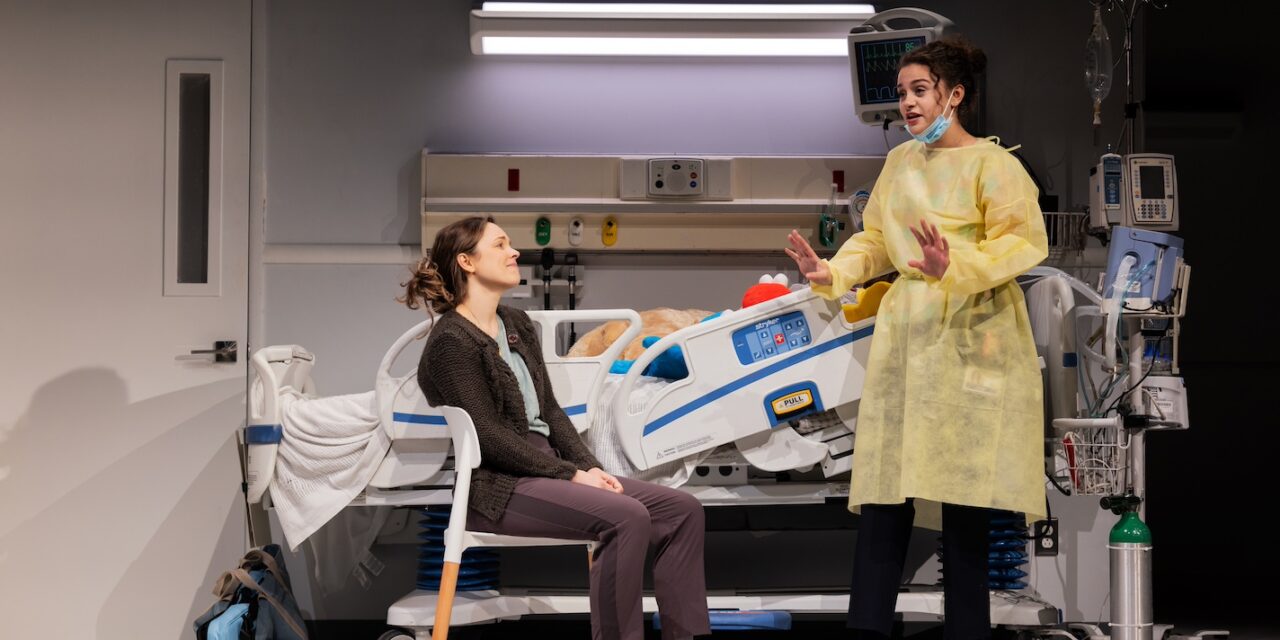Theater Review by Carole Di Tosti . . . .
Being a caretaker of a chronically ill child is a difficult task for the most dedicated of parents of means. However, when a single mother is left with the responsibility of caring for a very sick child, and there is no safety net of husband, family, sufficient finances, or a network of expert nurses and assistants needed for 24/7 care, how does the mother cope?
Mary Jane, the powerful, heartbreaking drama written by Pulitzer Prize finalist Amy Herzog (Tony-nominated for her adaptation of A Doll’s House), answers the stark question. The play, directed by Anne Kauffman, running in its Broadway premiere at Manhattan Theatre Club’s Samuel J. Friedman Theatre, stars Academy-Award nominated actress Rachel McAdams in her Broadway debut.
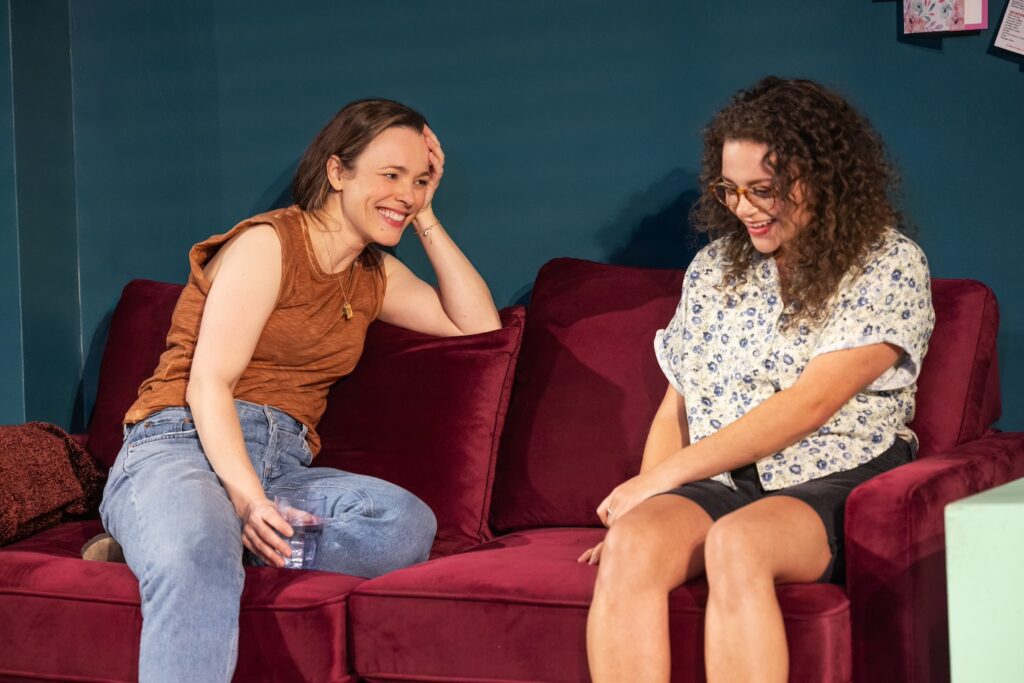
Mary Jane, which initially enjoyed its world premiere at Yale Repertory Theatre in 2017, then opened Off-Broadway at New York Theater Workshop to sterling reviews. The drama, about a single mother who daily confronts the impossibility of caring for a sick child who will never get better, is a tour de force.
For one hour and thirty-five minutes, the audience watches the gradual slow burn and piling on of seemingly insurmountable obstacles that Mary Jane confronts to get to the next day. As she juggles working, monitoring her son Alex’s care, barely eating, sleeping, and negotiating sometimes unreliable nursing staff—which she does with no family help—Mary Jane pulls together the waning fibers of strength and willpower with humor and stoicism to carry on.
From this remarkable inner power, Mary Jane gains the courage to inspire hope, which she conveys to her two-year-old son Alex, and others she meets along her journey. By the conclusion, Mary Jane experiences an ecstatic moment with a Buddhist nun (Brenda Wehle). This inner, light-filled event once more helps her continue in the face of Alex’s long hospital stay and the uncertainty of his dire condition.
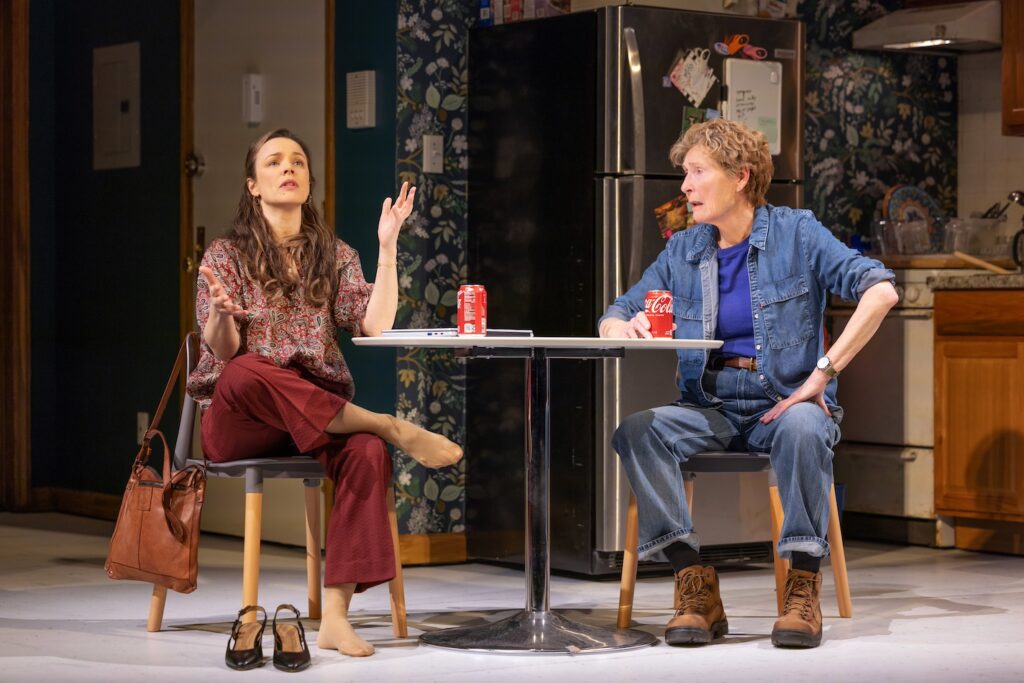

At the top of the play, Amy Herzog cleverly opens with a benign conversation between Mary Jane and Ruthie, the superintendent of her apartment building. The excellent Brenda Wehle portrays Ruthie and doubles in the supporting role of the Buddhist nun, Tenkei. The humorous interchange reveals Ruthie’s concern for Mary Jane’s health, as it relates to the tension that she infers Mary Jane carries in her body. Ruthie states such tension and stress can make Mary Jane susceptible to disease, a situation that happened to Ruthie’s sister who contracted cancer.
At this point, we don’t understand Ruthie’s underlying meaning. However, we are made complacent by Mary Jane’s cheerful attitude and affirmation that she feels good, though she is tired.
Gradually, Herzog unfolds the situation, as Mary Jane meets with various women during the development of Alex’s worsening condition. These include the following fine actors in dual supporting roles: Sherry (April Matthis, who also doubles as the remote Dr. Toros), is the warm-hearted, caring, visiting nurse who establishes a relationship with Alex and Mary Jane. Sherry has her niece Amelia (Lily Santiago, who also portrays Kat), visit as an encouragement for Mary Jane.
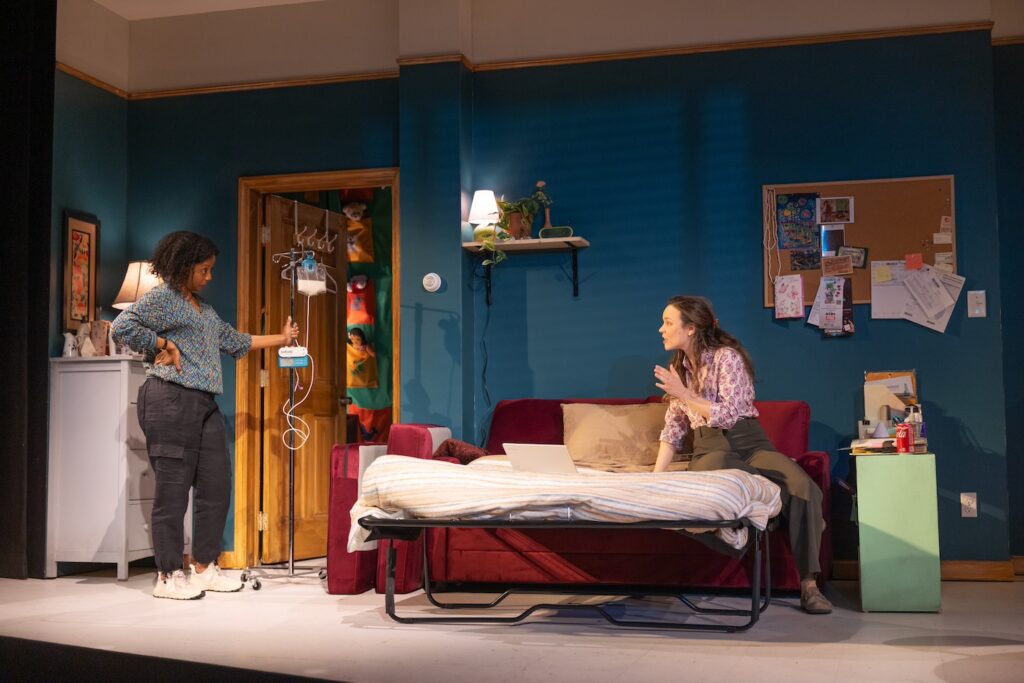

Another friend Mary Jane makes is Brianne (the excellent Susan Pourfar, who doubles as the very funny Chaya). Brianne is also the mother of a very ill child. Mary Jane explains to a grateful Brianne how to negotiate the hospital bureaucracy, available services, mediation, and problems with the insufficient healthcare system.
During these various interactions, we learn that Alex is a miracle. Born prematurely, doctors didn’t expect him to live, but his tenacity, resilience, and Mary Jane’s love brought him through. However, Alex suffers from cerebral palsy, respiratory illness, and other serious conditions which have recently worsened into seizures and possible strokes. To say that Mary Jane and Alex have hovered between life and death multiple times is an understatement.
Herzog has us experience what this “hovering” is like during a harrowing moment when we hear Sherry and Mary Jane minister to Alex, who is choking. Though we never see Alex during the entire play, at this moment their panic and fear, and Amelia’s tenuous call to 911, are enough for us to understand and appreciate how Alex’s “hovering” impacts Mary Jane, Sherry, and Amelia. It is then that we also recognize Mary Jane’s towering, almost infinite ability to conquer the weakness in herself to help maintain her son’s life.
The crisis moves Alex from their home, where his special bed and room were set up for medical care, to the hospital. There he receives sustained treatment and an additional diagnosis which may require surgery.
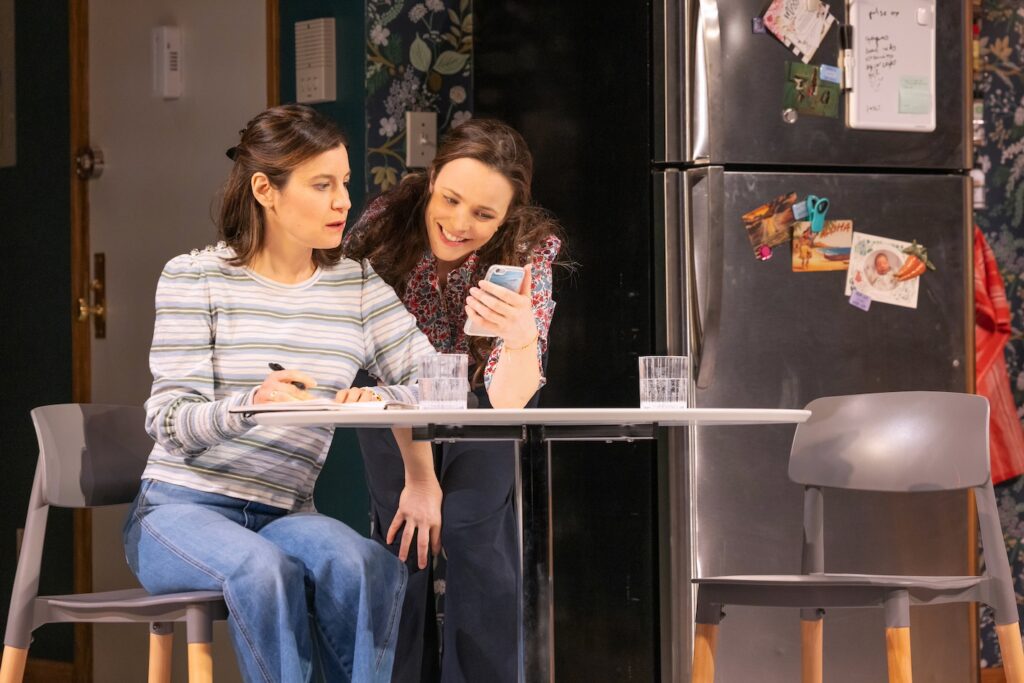

Lael Jellinek’s scenic design reveals Mary Jane’s humble, small home (one bedroom, kitchen, living room). Her Queens apartment is welcoming and warm, compared with the sterile white hospital room, special bed, and white break room where Mary Jane has the humorous and uplifting conversation with Pourfar’s Chaya.
The technical team also includes Brenda Abbandandolo (costume design), Ben Stanton (lighting design), Leah Gelpe (sound design), and J. Jared Janas (hair, wig & make-up design). These creatives express the director’s vision through minimal stylization that conveys a subdued tone.
Director Anne Kauffman balances the interactions of the women, who become Mary Jane’s encouragers on the precarious road of uncertainty. They are counterpoints to Mary Jane, whose indefatigable, “small” heroism reminds us of life’s realities and immutable truths. McAdams’s star power will sell tickets, and her acting chops will further manifest as the production shines.
Mary Jane. Through June 16 at the Manhattan Theatre Club’s Samuel J. Friedman Theatre (261 West 47th Street, between Broadway and Eighth Avenue). One hour and thirty-five minutes with no intermission. www.manhattantheatreclub.com
Photos: Matthew Murphy


